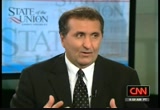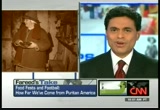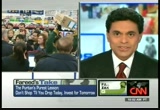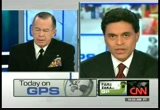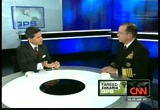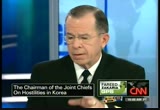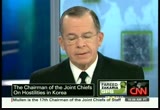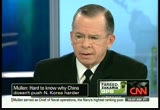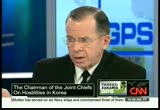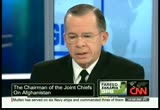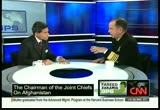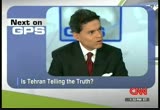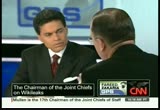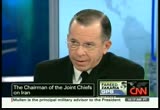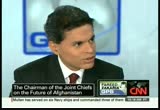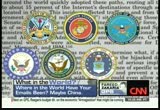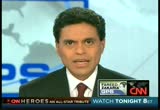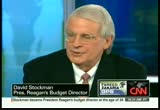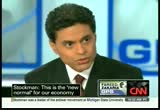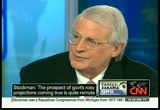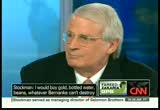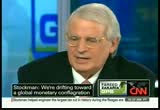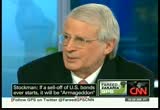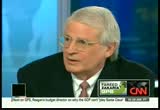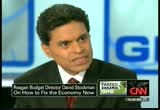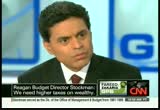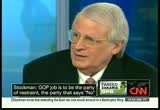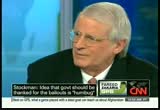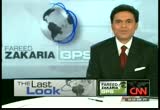tv Fareed Zakaria GPS CNN November 28, 2010 1:00pm-2:00pm EST
1:00 pm
were still living in alexandria after nixon resigned and they hadn't yet moved into the white house. the one of johnson is ike, you know, a one of a kind figure. i don't know that you're ever going to see a president like him. i mean, i think that there'll be a time, if there's a crisis in the middle of the night, where i'm called in and we'll photograph, you know, an intimate setting like this. but i don't know that you're ever going to see, you know, a president propped up in his bed like that. >> chief white house photographer, pete sousa. thanks so much for watching "state of the union." i'm candy crowley in washington. up next for our viewers here in the united states, "fareed zakaria gps". this is "gps," the global public square. welcome to all of you in the united states and around the world. i'm fareed zakaria. it's thanksgiving week in america, the time when all americans settle back and appreciate the extraordinary
1:01 pm
good fortune that this country has brought to its citizens. the day has become a kind of secular national holiday and a moment to give thanks for all the material and nonmaterial blessings of life. but it traces its origins to one particular community and customs, the puritans. needless to say, the original thanksgiving bears little resemblance to modern american thanksgivings. in their origins, these were essentially religious obser observances, not food fests. puritan america has left few traces on modern american life, and perhaps just as well. they were worried about moral corruption, human weakness, depravity, and always vigilant against temptation. when i think of them, i always recall the pithy line, that they were a people who were haunted by the fear that someone, somewhere, might be happy. but the puritans did have one
1:02 pm
overriding belief that the powerful and productive. they believed in and instilled in american culture the idea of delayed gratification. in fact, the socialologist danielle bell argues that the key to the success of american protestant europe might be that culture of delayed gratification or deferred gratification. transferred into modern day economics, it means a focus on investing for the future and not consuming in the present. you understand why i say that the puritan influence is nowhere to be found in america today. today the friday after thanksgiving is noted because it is supposed to be the busiest shopping day in america. in fact, while it was one of the busiest, it does not actually occupy the top spot. that honor goes to the saturday before christmas, another holiday once marked by religious observance that is now dominated by shopping. in any event, whether it's good moral s or not, delayed gratification is good nor long-term growth. the key ingredient has been an
1:03 pm
ability to invest for the future rather than consume in the present. they spent massively on education, health, infrastructure so they end up with a country with modern factories and facilities. the modern-day puritans are not in massachusetts, but in china and south korea. maybe they need to start celebrating thanksgiving out there, and i don't know, we should perhaps hold a big mardi gras party. we have a great show for you today. first up, admiral michael mullen. chairman of the joint chiefs of staff on the world's trouble spots. then, "what in the world." does the chinese government knows what websites you visited, what e-mails you sent or received? maybe. we'll explain. next, david stockman, ronald reagan's budget director now says that the republican party, his party, has abandoned its principled and crippled the economy in the process. we'll hear from him on what it takes to fix the economy. finally, a last look at the
1:04 pm
national sport of afghanistan and what this brutal fighting call tell us about that country. let's get started. joining me now, admiral mike mullen, the chairman of the joint chiefs of staff. he is the nation's top military officer and the principle military adviser to the president of the united states. admiral mullen, thanks for coming on. >> good to be with you, fareed. >> north korea. why are they doing this? so we have the sinking of the ship in march. we have the revelation about the nuclear facilities just last week. and now this incident, essentially, an attack on south korea. what do you think is going on? >> well, certainly, kim jong-il has been very difficult to predict, and if anything, he is consistent and predictable only
1:05 pm
in his unpredictability. but certainly what happened with the killing of the 46 south korean sailors, what happened with the development of the uranium enrichment facility, as well as, obviously, the artillery incident earlier this week that he initiated, there are many that believe this is part of his posturing for the succession of his young son, who i think is 27 years old. so in the near-term, sort of focused in that regard. but i believe his main focus is to continue to develop nuclear weapons, to continue to get the world's attention, and to continue to move -- try to move himself up to a level that is regarded as, you know, sort of a world player. and in fact, he's got a country that's starving its people, whose economy is absolutely
1:06 pm
dreadful. and he continues to take actions. and i think very deliberate actions, to destabilize a region that could be very dangerous for all of us, including -- not just the regional players, although i think, certainly, china has a great deal at stake with stability. >> and why does china not push harder? i mean, it seems as though they are the ones that provide energy and fuel that keeps the regime alive. and yet it is very difficult to get them to push either on a nuclear issue or on the ships or the sinking of the ship, where they did not actually condemn it. >> i actually agree with you on that. it's hard to know why china doesn't push harder. clearly, i know that china has been very concerned, as we have dealt, and with making sure that the korean people are supported as best they can. they clearly are interested in this -- in the region not spinning out of control. so my sense is, they try to control this guy. and i'm not sure he is controllable. and if we get it wrong, all of
1:07 pm
us, including china, the downside here, with his development of nuclear weapons, potential use of nuclear weapons, he's developed a missile capability, which over the -- in the future, will be able to threaten ballistically, will be able to threaten the united states and others. so he continues to move in this direction. and i think we all have to focus on getting his attention. but in particular, china, in terms of focusing on his vulnerabilities and making sure that that part of the world doesn't come undone. >> is it fair to say, given the great powers in china, russia, north korea, south korea, this may be the most dangerous place in the world? >> certainly, it potentially, i would say that. and to some degree, because of his unpredictability, and because of this transition, we don't know much about his son,
1:08 pm
specifically. and that's part of the challenge, is trying to understand the regime and understand what motivates them. i'm one who believes we shouldn't be rewarding bad behavior here. and yet he continues to generate that behavior in hopes that he can get attention, enough attention, to move in some direction that's, quite frankly, not determined. i don't trust him. i mean, he's lied continuously. he's done things against the u.n. sanctions. he's done things against his own word in 2005, where he said that, you know, he would move in a certain direction and he hasn't done that. so he's not a guy we can trust. and that's why the -- that's why the leadership aspect of this, from china, is so important. because if any country has influence in pyongyang, it's china. >> let's talk about afghanistan, an area where the united states
1:09 pm
still has a lot of influence. what can we -- what do we make about these reports broken by "the new york times" that the number two person in the taliban, supposedly, a man we were -- the afghan government was negotiating, we were supporting, turns out not to be the right guy. is it true and isn't this pretty embarrassing? >> well, as far as we've gotten any any kind of reconciliation discussion, it's been -- as dave petraeus said, it's been talks about talks. we really haven't made a lot of progress, and it's my belief we need to do this from a position of strength. this whole reconciliation effort is led by president karzai. and the reality is that we had suspicions about this guy very early, and we were -- >> did you tell the afghans that you had the suspicions, the karzai government? >> i think everybody had suspicions, very specifically. and it just took a little while
1:10 pm
to verify that. this wasn't a continuous set of meetings, it lasted over a period of time. but there were very early initial suspicions and it took a little while to verify who he was or who he wasn't. and in fact, it turns out that he wasn't the guy that he was claiming he should be. but in this process, fareed, it's a very important process. there clearly at some point in time will be -- a part of this will be the political reconciliation and the negotiations that go along with that -- >> with the taliban? >> absolutely, with the taliban, at some point. but we need to do that from a strong position and we're just not there right now. and the taliban don't think they're losing, and the likelihood that they're going to take any significant steps with respect to reconciliation, i think, is low. >> but when one reads about these intelligence failures, if you look at the north korean nuclear facility, which we were taken by surprise, you can look at this afghan guide.
1:11 pm
it is puzzling. we spend more money on intelligence than the rest of the world. we spend $60 billion on it. you oversee a large part of this. in the private sector, these guys would all be fired. >> i think that's too simple an answer. there's an extraordinary group of professionals who are working hard to uncover from an intelligence standpoint all the intelligence and information that we need. and i've seen that. i'll shift just quickly to the recent threats coming from yemen with al qaeda on the arabian peninsula there and the cargo flights. the bombing that was -- the potential, the times square incident and also last year in detroit. so an awful lot of people working hard to make sure something doesn't happen, and thenspecifically, again, with mansour, there were immediate suspicions, was it couldn't be
1:12 pm
validated for a while. so in fact, the intel world tipped us in the right direction with respect to that. this was somebody that didn't have a meeting with karzai, as far as i know. he was meeting with his intermediaries. there are an awful lot of good people in a very complex world trying to make sure we get the intel right. >> we have to take a break. when we come back, we'll talk about iraq, iran, yemen, all the fun spots in the world with the chairman of the joint chiefs of staff, when we come back. >> last week on this program, mohammad larijani, a senior iranian official, we absolutely, categorically, have no intention of nuclearization. no nuclear weapons, just a nuclear program. do you believe that? >> i don't believe it for a succeed. ♪ for he's a jolly good fellow ♪ the meeting's tomorrow in dallas ♪
1:13 pm
♪ we need to finish those projections ♪ ♪ then output the final presentations ♪ ♪ sally, i'm gonna need 40 copies, obviously collated ♪ what's going on? when we're crunched for time, brad combines office celebrations with official business. it's about efficiency. [ courier ] we can help. when you ship with fedex, you can work right up until the last minute. it gives you more time to get stuff done. that's a great idea. ♪ i need to speak with you privately ♪ ♪ i found your resume on the printer ♪ everyone! ♪ i found your resume on the printer ♪ [ male announcer ] we understand.® you need a partner who gives you more time. fedex. we removed the alcohol and made it less intense. ♪ it still kills bad breath germs for a whole-mouth clean. and it's never felt so good. new less intense listerine® zero™. necessarily apply at 5. this is america, man. home of the highway...
1:14 pm
1:15 pm
now in superfruit blends, naturally rich in vitamins and antioxidants. northland. the power of dark fruit. and we are back with the chairman of the joint chiefs of staff, mike mullen. another set of wick canwickilea documents. do you think that this endangers the lives of american troops, these kind of leaks? >> absolutely.
1:16 pm
not just american troops, but it also endangers the lives of other individuals that we have engaged in our joefrlts. whether they be in afghanistan or other countries. so i think it's a very, very dangerous precedent. what i don't think those who are in charge of wikileaks understand is that we live in a world where just a little bitty piece of information can be added to a network of information and really open up an understanding that just wasn't there before. so it continues to be extremely dangerous, and i would hope that those who are responsible for this would at some point in time think about the responsibility they have for lives that they're exposing and the potential that's there and stop leaking this information. >> i'm going to take you on the tour of the world, because we don't have a lot of time. iran. you have been consistently
1:17 pm
suspicious of iran's nuclear capacity. i remember talking to you about this and you've said it publicly. last week on this program, mohammad larijani, a senior iranian official says, we absolutely, categorically, have no intention of weaponization. no tlenuclear weapons, just a weapons program. do you believe that? >> i don't believe it for a second. in fact, the information and intelligence that i've seen speak very specifically to the contrary. iran is still very much on a path to be able to develop nuclear weapons, including weaponizing them, putting them on a missile and being able to use them. >> do you believe that it is -- now is the time to start thinking about military options? >> we've actually been thinking about military options for a significant number of time. i've spoken and many others have had options on the table, and we will continue to do that in the future. i still think it's important we focus on the dialogue, we focus
1:18 pm
on the engagement, but also do it in a realistic way that looks at whether iran is actually going to tell the truth, actually engage, and actually do anything. we've got a history of gamesmanship that certainly doesn't the include closing on significant steps to indicate to the international community that they're not doing this. >> when we look at afghanistan, 2011 is meant to be the time we start drawing down. >> will there be real draw downs in american troops? and i will define that as 5,000 troops or more? >> well, we're not picking a number, but, yes, we will start drawing down troops next july. eit will be based on a recommendation from general petraeus. we don't flow what province and we don't know how many, but we're very committed to starting that drawdown there. all of that said, every indication that i can see is
1:19 pm
there's certainly going a substantial number of allied troops in afghanistan after july 2011. >> but thereby a significant drawdown? >> there'll be a drawdown. i'm not going to describe it in either terms of numbers -- fareed, honestly, i don't know. i've got to wait for dave petraeus to make a recommendation. >> are there any circumstances in which you can imagine there being a significant build up of troops in yemen? american troops? we have a few advisers, but more substantial? >> not that can i see in the near future based on the conditions there. certainly, this is a somp country. we have some support troops that are basically doing training there, but i certainly -- and it's not for me to decide, but certainly i don't see any indication that we're going to have significant number of troops in here. >> final question. in yoemen, we face the same dilemma we face other places. we need to fight al qaeda, so we support a dictator that rules the country a pretty tough way, and a lot of people tell us your support for this guy is fueling
1:20 pm
anti-americanism and fueling the jihadis. >> well, there's no easy answer here. certainly as i've watched this over the last couple of years, president saleh has stayed with us in a very solid way. now, he's been there a long time, as a leader of that country, but this isn't the first time in our history where we've worked with individuals who are controversial individuals. i think we've done that in the past. we're doing it now, to address the threats that really threaten americans. this al qaeda group in yemen is trying to kill americans and has. recently looking at these last two cargo bombs that they have put in place. we're only obligated to continue to address that threat. >> admiral, a pleasure and honor to have you on. thanks. we will be back. [ female announcer ] this is not a prescription.
1:21 pm
this is norma. who's inundated with all the information coming at her concerning the medicare part d changes this year. so she went to her walgreens pharmacist for guidance and a free personalized report that looks at her prescriptions and highlights easy ways for her to save. because norma prefers her painting to paperwork. see how much you can save. get your free report today. expertise -- find it everywhere there's a walgreens. had a tree that bore the most rare and magical fruit, which provided for their every financial need. [ thunder rumbling ] [ thunder crashing ] and then, in one blinding blink of an eye,
1:22 pm
their tree had given its last. but with their raymond james financial advisor, they had prepared for even the unthinkable. ♪ and they danced. see what a raymond james advisor can do for you. just got more powerful. introducing precise pain relieving cream. it blocks pain signals fast for relief precisely where you need it most. precise. only from the makers of tylenol.
1:24 pm
world" segment. i want you to think back to april 8th of this year. what e-mails did you send? what websites did you visit say around noon eastern time that day. you probably have no idea, neither do i. but there might be a record of it in china. for 18 minutes on that day, at noon, china apparently might have hijacked massive volumes of web traffic. 15% of all the internet routes in the world. that's what a new report to congress from the u.s. china economic and security review commission says. what does that mean? well, dmitry al pairovich, the vice president of threat research at the security giant mcafee says, think of this like the post office. it would be lake somebody rerouting letters going to 15% of the world's postal codes. if you lived in one of those postal codes, instead of your mail going from, say, new york to los angeles, directly, it would have stopped in china along the way. in this case, it wasn't just
1:25 pm
e-mail, it was web browsing, instant messages, web-based phone calls, video conferences, anything transmit offered the internet that went through the servers of china telecom, china's state-owned communications company. according to the report, the hijacking was not just private individuals' messages, but included dot gov and dot mil sites too. the incident affected internet traffic to and from the u.s. senate, the u.s. army, navy, and marine corps and air force, as well as the office of the secretary of defense and nasa. in the wake of the incident, and the new report to congress, there have been many denials. the pentagon told cnn that the security of defense department information isn't affected by misdirection of internet traffic. the chinese embassy in washington called the report's allegations specious, unwarranted, and irresponsible, saying china will never do anything to harm other countries' national security,
1:26 pm
either in real or in virtual worlds. to be clear, the hijacking could have been an accident or a mistake and all of that data could have passed through china's servers untouched, or it could have been intentional, and chinese intelligence agents have now sifted through all of that data. we just don't know. that's part of the problem. this is a new arena of great power rivalry, one that operates under the radar screen. but it is a crucial source of power. imagine if we went to war with iran and in response, suddenly the computers that control new york and washington's electricity grids crashed. so much of modern life is totally dependent on computers that their security and survival are vital to our country's well-being. we need to take a whole slew of security measures to protect our systems. we also need to talk to other countries and develop codes of conduct, arms control agreements, if you will, for what is acceptable and unacceptable in this realm. this is a murky world of
1:27 pm
cyberwar, and it could get very messy and eventually have real-world explosions if we don't get careful. meanwhile, you might just want to go back to your "sent mail" folder for april 8th and see what messages you did send. and we will be right back. we're just printing money. we're literally printing money to pay the government's bills. and there's no case in history where that's worked for very long.
1:28 pm
if you live for performance, upgrade to castrol edge advanced synthetic oil. with eight times better wear protection than mobil 1. castrol edge. it's more than just oil. a body at rest tends to stay at rest... while a body in motion tends to stay in motion. staying active can actually ease arthritis symptoms. but if you have arthritis,
1:29 pm
staying active can be difficult. prescription celebrex can help relieve arthritis pain so your body can stay in motion. because just one 200mg celebrex a day can provide 24 hour relief for many with arthritis pain and inflammation. plus, in clinical studies, celebrex is proven to improve daily physical function so moving is easier. and celebrex is not a narcotic. when it comes to relieving your arthritis pain, you and your doctor need to balance the benefits with the risks. all prescription nsaids, including celebrex, may increase the chance of heart attack or stroke, which can lead to death. this chance increases if you have heart disease or risk factors such as high blood pressure or when nsaids are taken for long periods. nsaids, including celebrex, increase the chance of serious skin or allergic reactions or stomach and intestine problems, such as bleeding and ulcers, which can occur without warning and may cause death. patients also taking aspirin and the elderly are at increased risk for stomach bleeding and ulcers. do not take celebrex if you've had an asthma attack, hives, or other allergies to aspirin, nsaids or sulfonamides.
1:30 pm
get help right away if you have swelling of the face or throat, or trouble breathing. tell your doctor about your medical history and find an arthritis treatment that works for you. ask your doctor about celebrex. and, go to celebrex.com to learn more about how you can move toward relief. celebrex. for a body in motion. the great political question of our time is whether the gop, the republican party, can get the united states' fiscal hours in order. that's what it campaigned on. now, if the gop mind-set, ronald reagan's presidency is often held up as the shining economic example that transitioned this country away from the malaise of the carter years to the booming 1980s and '90s and this is what we should all be trying to do. well, ronald reagan's first
1:31 pm
budget director was david stockman. stockman left politics 25 years ago, but he is so worried about where we're headed, he has re-entered the national debate. david stockman joins me now. welcome. >> great to be here. >> tell me what the economy looks like, first of all. you spent a lot of time looking at these kinds of things. when you look at the data, what does the american economy look like now? >> i think it's very weak and i think we're not in any kind of conventional recovery. i think we've been in a 30-year binge of massive debt creation in the public and household sector. i think we've had a fed that has totally changed policy and has become very easy and run the printing press year after year, fueling this enormous current account deficit that we've had. we've basically run $8 trillion worth of deficits with the rest of the world, that is, we're living beyond our means, by that extent. and it's cumulatively built up into all kinds of weaknesses in our economy. so today, we're having a hard
1:32 pm
time recovering from the big recession that we went through over the last two years. and i think this is going to be par for the course. the new normal. economic growth will be weak with as we try to unwind this massive spree that we, unfortunately, indulged in, and reduce the debt on the household sector and on the public sector at some point. >> so you're talking about a number of years of fairly poor growth. probably much worse than the current projections? >> yes. i think that's right. and we've never faced that before, because for 40 or 50 years, this baby boom generation has always believed that things will get better and better, and they did. and that when we ran into recessions that we could spend our way and borrow our way out of it, well, we did, three or four or five times. but i think when we got to 2008,
1:33 pm
we were at the end of the road. we had $50 trillion of debt, we had what would be called a leverage ratio that never before had been seen in history, even during the great depression of the 1930s. so we were at a break point. and as a result of that, we're now in an environment where it may take ten years of very little growth. of difficult struggle to re-balance our economy. and bring it back to sustainable health, so we're in a real bind and i think the budget projections ignore that. and therefore, they're way too optimistic. >> the fed and the white house and congress are all projecting growth rates for next year and the year after, that you think are essentially impossible to achieve. >> yes, they're projecting that soon, within a year or two, we'll be back up to 3% or 4% growth. over the next five years, the unemployment rate would couple down from ten to five, that we'll create 13 million new jobs
1:34 pm
over the next five years or about 250,000 a month. when since the recession ended in june of 2009, we've barely created 50,000 a month. so the prospect that that is likely to happen, i think, is quite remote, and therefore, i think if you recalculate the budget with a realistic level of unemployment. and therefore, more unemployment spending, more food stamp costs, and less revenue, the budget deficit will be $100 billion a month as far as the eye can see. and our economy is growing at $50 billion a month at best. so we have a debt, a national debt, that's growing at twice the rate of our economy, and we have total stalemate in the political process in washington, as we saw last week in response to the proposal, which i think was pretty constructive, of the two co-chairman. it was dead on arrival.
1:35 pm
>> explain that. because you're not just a policy wonk, you're a congressman, you're a congressman from michigan, which is a tough place to be a congressman from. >> sure. well, we have got now 30 years with each side sort of digging into their favorite political zone of defense, so now we have the two parties dug in, no spending cuts from the democratic side, no revenue increases, and in fact, tax cuts from the republican side and our system is broken. it is ungovernable, fiscally. and at one point or another, down the road, the world financial markets, the bond markets, the currency markets are going to figure this out. they're going to figure out that today this crazy qe2 that we have from the fed is really a disguised form of monetization. each month the fed is going to be buying $100 billion worth of new treasury debt. each month, the treasury is going to be issuing $100 billion
1:36 pm
to fund this huge gap. well, that means that we're just printing money. we're literally printing money to pay the government's bills, and there's no case in history where that's worked for very long. >> you say, you as an investor will buy everything that ben bernanke cannot destroy. what do you mean? >> well, i said i would buy gold, maybe i would buy bottled water, canned beans, and some fla flashlight batteries. there was kind of a statement to say, there's a lot of worry about this and it's not entirely flippant. i think the federal reserve is under attack from every corner of the globe, and it should be. from ron paul on the right, and he's right, to the chinese communist leaders, who learned their economics from the little red book. and even they can see that printing money in this reckless way, in this magnitude, in an economy where there's too much debt already and the interest rate is zero, what sense does that make? >> so paint the scenario that you worry about? and not a worst-case scenario,
1:37 pm
but a realistic scenario where presumably you feel at some point world markets, world investors will say, wait a minute, can we really rely on the united states to fulfill all these obligations? >> yes. the worry i have is that we're drifting down the road to a global monetary conflagration, where this enormous flow of new dollars into the world market creates a huge reaction. and you're seeing it already. brazil is denouncing it. you know, printing press money. the chinese, the germans. so we're running into a dead end here, pretty quick. and if a sell-off in the global u.s. government bond market ever gets under way, it will be, you know, traumatic. it will be a real articmageddon situation. there's $9 trillion out there of
1:38 pm
u.s. bonds, bills, and notes. and if the world market loses confidence and a sell-off begins, it will really be a traumatic moment. >> it will mean that the only way to maintain the system is that the united states, the federal reserve will have to raise interest rates very high, which will choke off which little growth we have. >> exactly right. exactly right. >> they are playing a very dangerous game at the fed, and they're playing an even more dangerous game in washington. by pretending that, well, the economy is weak, yes, it is, but it's going to stay weak. and therefore, they're saying, let's wait two years and do something. when your credit card is taken away, you detainee really tell the credit card company, give me a couple years to pay back my default. this is where we are right now as a nation. we don't have two years to wait for the economy to get a little better before they start to cut
1:39 pm
spending and raise taxes. i think it's silly that they are thinking about extending the tax cuts for the richest 2% of americans in light of the circumstance that we're in. i'm just shocked that obama wouldn't have the fortitude, wouldn't have the insight to realize he has to stare down congress and say, no, i'm drawing a line in the sand. send me a bill that extends tax cuts for billionaires, and i will veto it. and yet, what do you hear? maybe we'll compromise and extend them for a couple years. unless we get some leadership out of the white house, this situation is going to go from bad to worse very quickly. >> we will be back right after this. when we come back, david stockman will explain his solutions to some of these problems and the politics of it. why is it that his party, the republican party, is unwilling to do what it takes to get the economy back in shape.
1:40 pm
when we come back. this isn't about growth. this isn't about morning in america in 1980, this is about solvency. this is about cleaning up the mess the morning after from a 30-year binge that wasn't sustainable, as we've learned. one word turns innovative design into revolutionary performance. one word makes the difference between defining the mission and accomplishing the mission. one word makes the difference in defending our nation and the cause of freedom. how... is the word that makes all the difference. ♪
1:41 pm
♪ ♪ [ male announcer ] print from any mobile device so your ideas can be there even when you're not. introducing the new web-connected printers with eprint from hp. ♪ we need to finish those projections ♪ ♪ then output the final presentations ♪ ♪ sally, i'm gonna need 40 copies, obviously collated ♪ what's going on? when we're crunched for time,
1:42 pm
brad combines office celebrations with official business. it's about efficiency. [ courier ] we can help. when you ship with fedex, you can work right up until the last minute. it gives you more time to get stuff done. that's a great idea. ♪ i need to speak with you privately ♪ ♪ i found your resume on the printer ♪ everyone! ♪ i found your resume on the printer ♪ [ male announcer ] we understand.® you need a partner who gives you more time. fedex.
1:43 pm
1:44 pm
between north and south korea. north korea has been threatening further attacks in response to joint military drills with the u.s. and south korea that are going on in the yellow sea right now. haitians are lining up to vote in their country's national elections. 18 candidates are running for president. members of the senate and parliament are also being elected. today's vote is a pivotal one for the island nation as it struggles to recover from january's massive earthquake and an ongoing cholera epidemic. a detroit area mall is back open after a shooting last night. two people were critically injured. an 18-year-old and a store employee. harper woods, police say, it involved two rival groups of teenagers. those stories and more at the top of the hour in the newsroom. right now back to "fareed zakaria gps." together we'll make her holiday. that's why only zales is the diamond store. where you'll get an extra 10% off at zales.com, all day cyber monday.
1:45 pm
1:48 pm
and we are back with david stockman, ronald reagan's budget director. the architect of the reagan tax cuts. we're going to talk about what to do now. you say the only solution, logically, is you have to cut spending and raise taxes. >> that is correct. >> the hole is too large. you can indulge in the fantasy that you just do one or the other. but part of what you want to do is you are really very comfortable raising taxes stank substantially on the rich, because you feel that there has been a real divergence of americans. >> much of this was a debt-fueled money, easy money bubble. in fact, it was a serial bubble. first the dot-com and then the housing, consumer credit and the
1:49 pm
atm machine and everybody buying, borrowing from their house, in order to buy things they couldn't afford. so all of this ended up, strangely enough, shifting wealth and income to the very top strat of our society in a way that we've never seen in history. because it wasn't real sustainable mainstream economic growth and prosperity. one number that i think is shocking is that in 1985, the top 5% of households had $8 trillion of net worth. by the peak of this bubble in 2007, they had $40 trillion. >> so from 8 to 40. >> 8 to 40, five fold in 25 years. >> and the economy didn't grow five fold. >> the economy didn't grow five fold. and it was because of the bubble valuations of assets, stocks, and bonds, and real estate and all of the other speculative class -- >> so you say -- >> i'm saying that it's now so
1:50 pm
distorted that to get the economy back to health, we'll have to re-set some basic parameters of our economy, and one of them in this environment would be a higher tax burden on the upper income than a conservative, like myself, would ordinarily advocate. but right now, this isn't about growth. this is about one of the problems in the republican party, it seems to me, tax cutting has become a kind of theology. so when you bring up the fact if you do extend the bush tax cuts, further tax cuts, you will lose revenue. people say no no no, that's not how it works. if we cut taxes we will get more revenue. reagan did it. they often point to the reagan tax cuts.
1:51 pm
>> unfortunately that's one of the unfortunate legacies of the 1980s i don't think was intended. after 1985, the republican party adopted the idea that the tax cuts can solve the whole problem and that therefore in the future deficits didn't matter and that tax cuts would always be the solution of first, second, third resort. once that got embedded in new republican congressmen and senators became drilled in that catechism and became positioned politically on that proposition, it really led the party out into the wilderness. then when dick cheney, who should have known better in the 201 debate i think it was about the first bush tax cut, it was totally not needed, said reagan proved deficits don't matter. reagan proved nothing of the kind. yet that became the mantra. it just led the republican party
1:52 pm
away from its traditional sound money, you know, fiscal restraint principles that were really the heart of the republican party and its job in the system of the republican party's job, the conservative party, is to be the party that says no of the party of restraint. the party of fiscal responsibility. the others can be the party of dealing with social issues and so forth. that's necessary as well. when you have both parties playing santa claus and you have no one willing to spend political capital on fiscal and financial restraint, we he said up with the decision we had by 2008. >> you're pretty critical of the bailouts themselves. you think they did a lot of damage. warren buffett said we should thank united states, intervened, save the system. you're very concerned about it. you say this as a michigan
1:53 pm
congressman who voted against the chrysler bailout. >> the first one in 1979. i think history proved that was correct. i am strongly opposed to bailouts but particularly opposed to bailouts of wall street. the idea the government ought to be thanked for the bailouts is just so much humbug. the panic that occurred in '08 wasn't main street america, wasn't businesses about to close their doors because they didn't have cash to meet payroll. that's all urban legend. the panic was in the treasury building where the federal reserve and bernanke reside. they created the panic. they stirred up congress. they were so concerned about where the stock price of morgan stanley and goldman was they didn't look at the bigger picture. if a couple more banks had gone
1:54 pm
under, they would have gone under. if goldman went to $10 and stayed there a couple of years, it wouldn't have been the end of the world. when we did that, that was the waterloo for fiscal policies. how can you tell a farmer from alabama to cut cotton subsidies after they bailed them out and they were back to rosey pink health and paying bonus, which are the highest in history. i'll never forget the bush administration and paulison for basically destroying the last vestige of fiscal responsibility we had in the republican party. after that, i don't know how we ever make the tough choices. >> pleasure to have you on. >> thank you. >> we will be back. [ male announcer ] for fastidious librarian emily skinner,
1:55 pm
each day was fueled by thorough preparation for events to come. well somewhere along the way, emily went right on living. but you see, with the help of her raymond james financial advisor, she had planned for every eventuality. which meant she continued to have the means to live on... even at the ripe old age of 187. life well planned. see what a raymond james advisor can do for you. to bring you a low-price medicare prescription drug plan called the humana walmart-. it's a new plan that covers both brand ans and has the lowest-pricednatioy of only $14.80 per month and in-store copays as . when you could save over, you can focus on the things .
1:56 pm
♪ go to walmart.com for details. i'm hugh jidette and i'm running for president. i'll say a lot of things but do i really care about this baby's future? when he's 30 years old our $13 trillion debt will be $70 trillion eventually his taxes will double just to pay the interest. i'm hugh jidette and i say let's keep borrowing and stick our kids with the tab. [ commearlier, she hady vonn! an all-over achy cold... what's her advantage? it's speedy alka-seltzer! [ male announcer ] alka-seltzer plus rushes relief for all-over achy colds. the official cold medicine of the u.s. ski team. alka-seltzer plus.
1:58 pm
our question this week from the gps challenge is, what did russia's vladimir putin and china's wen jiabao meet in st. petersburg to discuss this week? a, nuclear proliferation, b american hegemony. go to cnn.com. check out the podcast, subscribe on itunes. you never miss a show and the price is zero. the book of the week is "bounce" by the author of former table tennis world champion looks at why people like him get to the
1:59 pm
top of their fields. he's a columnist with the "new york times" and says our obsession for talent rather than hard work caused more harm than we could imagine leading to the blow up of enron. he looks at whether blacks are better runners and much more. as a parent i was struck by the section on education. syed telling your kids you're so smart is detrimental to their education. if you want to know why, read the book. for the last look, every nation has unique traditions when viewed from outside might look a little odd. here in the states, of course, it's the season where we kill a turkey and gorge upon it. in afghanistan it is the beginning of the season where they kill a goat or calf and race around on horses with the carcass. the object is to drop the dead
249 Views
IN COLLECTIONS
CNN Television Archive
Television Archive  TV News Test Collection
TV News Test Collection  Television Archive News Search Service
Television Archive News Search Service  The Chin Grimes TV News Archive
The Chin Grimes TV News Archive 
Uploaded by TV Archive on

 Live Music Archive
Live Music Archive Librivox Free Audio
Librivox Free Audio Metropolitan Museum
Metropolitan Museum Cleveland Museum of Art
Cleveland Museum of Art Internet Arcade
Internet Arcade Console Living Room
Console Living Room Books to Borrow
Books to Borrow Open Library
Open Library TV News
TV News Understanding 9/11
Understanding 9/11